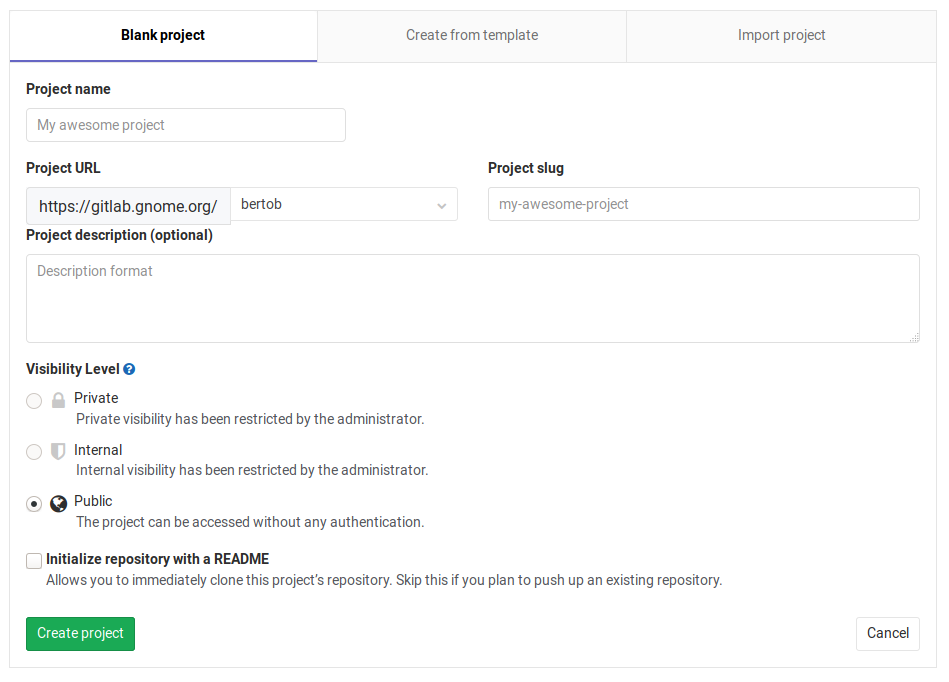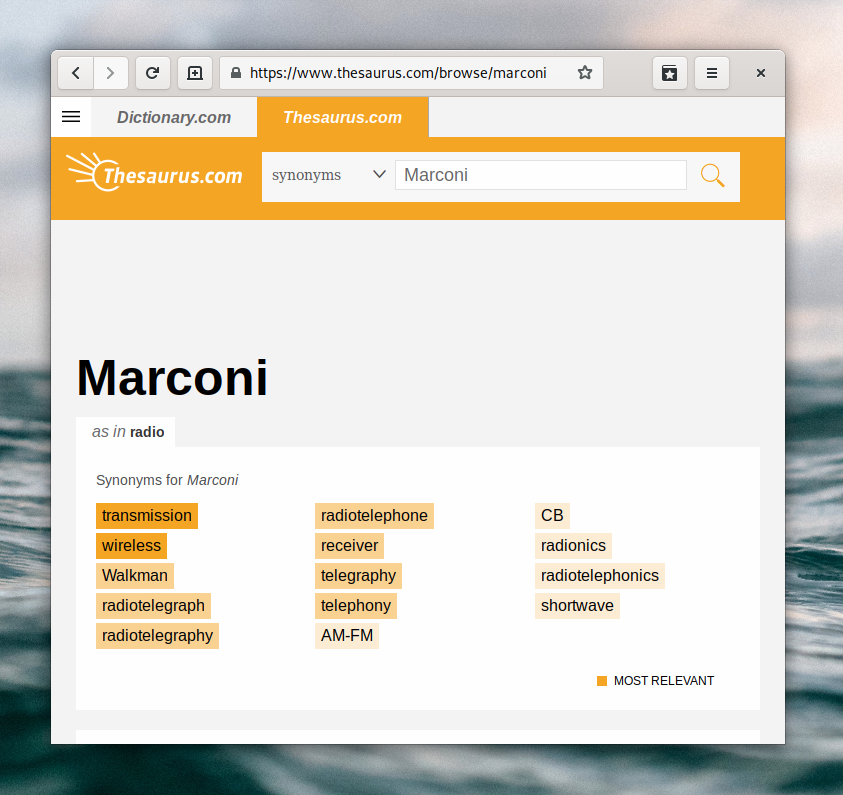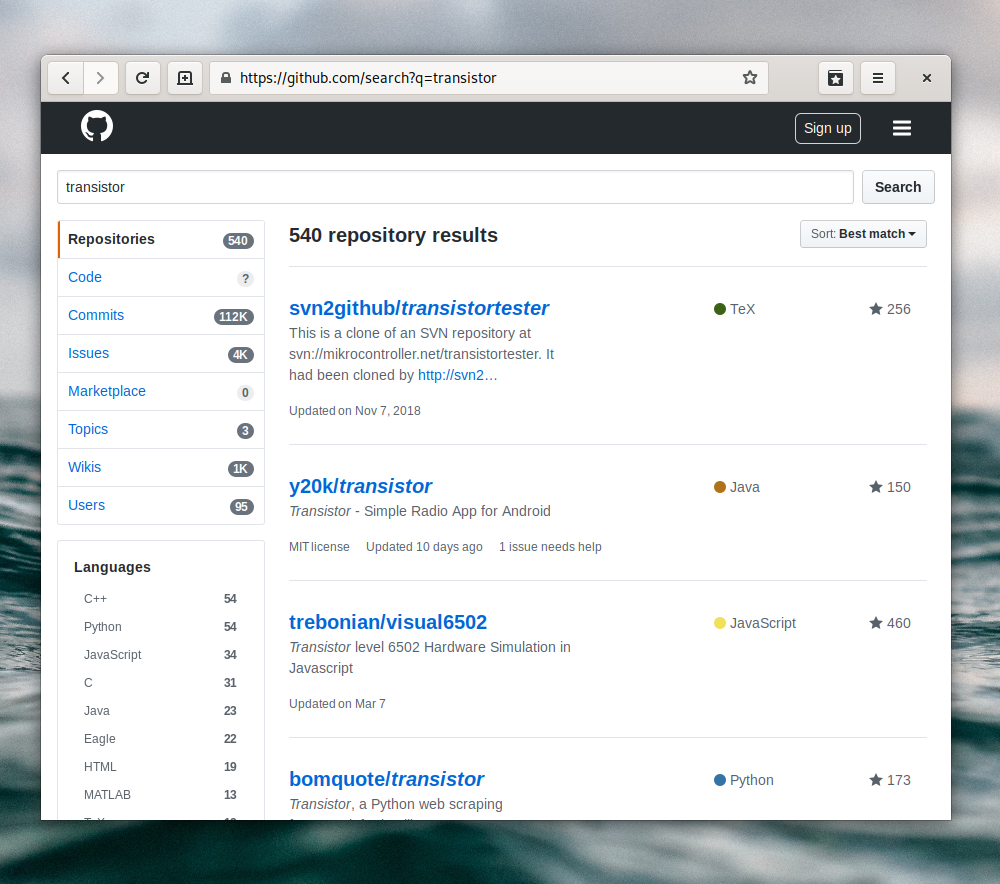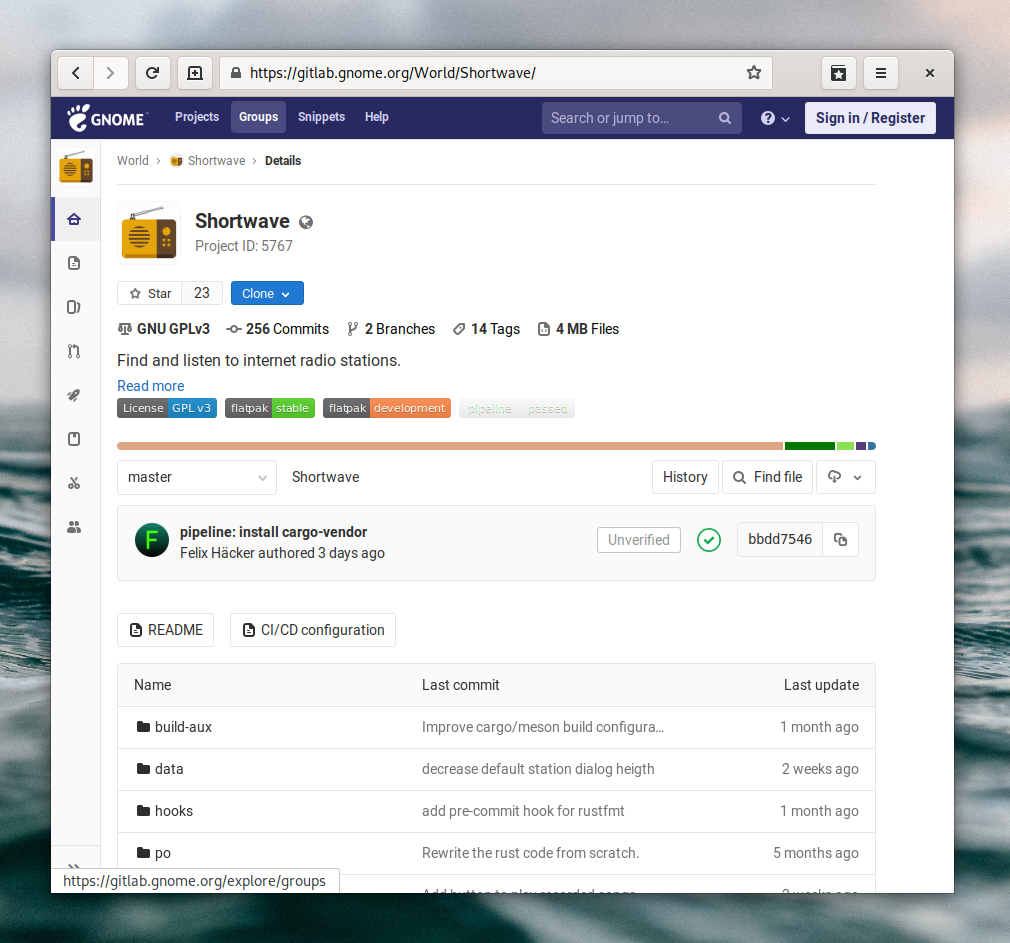So you’ve decided to make a new app for GNOME, and designed a great interface for it. Now you want to start building it, so you open Gitlab to create a new repository. But then, oh no — it wants a name for the repository. Existential dread sets in.

Naming things is hard, and naming user-facing things is even more so. App names are read, pronounced, heard, and remembered by lots of people. The name is, along with the icon, the most important identifier for your project. With this tutorial I hope to make finding a great name for your app a bit easier.
General Guidance
As the GNOME Human Interface Guidelines put it:
“An application’s name is vital. It is what users will be first exposed to, and will help them decide whether they want to use an application or not. It is a major part of your application’s public face.”
Finding a good name is not always easy, but putting in a bit of effort up-front is worth it, because renaming the app once it’s established is much harder and messier.
A good name should:
- Consist of one or two simple nouns
- Be related to the app’s domain (e.g. Celluloid for a video app)
- Be short (less than 15 characters)
- Be easy to pronounce
- Make it easy to come up with a good icon (e.g. by referencing a physical object that could be used as the icon)
- Use title case (e.g. Icon Preview instead of iconPreview)
A good name should avoid:
- Using trademarks or names of other projects (e.g. GNOME MPV)
- Having a “G” prefix (e.g. GParted)
- Overly complicated names and acronyms (e.g. GIMP)
- Puns and inside jokes (e.g. D-Feet)
- Non-standard punctuation or whitespace (e.g. UberWriter)
- Made-up words or word combinations (e.g. Inkscape)
The Process
Over the years I’ve been involved with naming a lot of projects, and at this point I have a process which consistently produces pretty good results. It more or less goes like this:
- Write down all the words related to the app’s domain you can think of
- Do a thesaurus search for some of those words to find even more related words
- When you have about 15, start picking out some of the best-sounding ones, and look at their other qualities. Are they too long? Easy enough to pronounce? Do they have any unintended negative connotations?
- Once you have picked a handful of favorites, do a quick check to see if the names are already taken
- Among the ones not taken, pick your favorite one
Of course, when naming an app which is part of GNOME itself, the rules are a little different because these apps have completely generic names describing their function or the type content they show (e.g. Files, Image Viewer, Fonts, Music). That’s a much more rare (and usually easier) case though, so in this tutorial I’ll focus on independent third-party apps.
Let’s look at a real-world example of this process. A few months ago I was involved in renaming an internet radio app. At the time it was called Gradio, which was a bad name for many of the reasons mentioned above, and we wanted a nicer name for the new, completely rewritten version of the app.
1. Brainstorm
So, internet radio. What words immediately come to mind?
- Radio
- Transmission
- Stations
These are pretty generic, so let’s branch out a bit. As with most digital technologies it’s hard to find nice metaphors, but we can make use of the analog predecessor to it (i.e. analog radio). Are there physical objects related to that which we could use?
- Receiver
- Headphones
- Antenna
Maybe something related to analog radio technology?
- Transistor
- Frequencies
What about names of people who worked on the technology?
- Marconi
- Hertz
2. Thesaurus
Now that we have a few words to start with, let’s plug them into a thesaurus and see if there are any good related words. This is usually pretty hit or miss, as most related words you’ll find will not be relevant to the domain or make sense as names. However, after a few searches I always find a few good options that I didn’t think of before.
Update: I recently found another good website to find related words, appropriately named relatedwords.org.

Here are a few additional words from thesaurus searches:
- Transmission
- Shortwave
- Wireless
- Decibel
In this particular case we also had a brainstorming session on Matrix with a group of people from the community, which produced a few more options:
- Longwave
- Shortrange
- Hzzzzz
- Spectrum
- Waves
3. Pick the best ones
Now we have about 20 words, which is a good place to stop brainstorming and start looking at which ones would make good names.
This process is not very scientific, just look at each word and imagine it as the name of the app. In particular, pay attention to the length of the name, ease of pronunciation, and whether it sounds nice.
In this case, some of my favorites are:
- Transistor
- Hertz
- Spectrum
- Shortwave
They’re all relatively short, easy to pronounce, and sound good as app names. The main question at this point is whether we can use them or if they’re already taken.
4. Check if they’re taken
I usually start off by searching directly on Github, to see if there are other FOSS projects already using the name. If I don’t find anything there, I search for the name on on Duckduckgo, adding “app” or “open source”.
In many cases you’ll find something somewhere using the name already. That doesn’t necessarily have to be a problem if it’s an app/project/company in a different domain, but it’s good to avoid large projects and companies.

In this case, it turns out “Transistor” is already a radio app for Android. Since it’s an app doing something very similar, people might think our radio app is affiliated with this project, which we want to avoid.
“Hertz” is the name of a car rental service. It’s a pretty big company, so best to stay away from that as well.
“Spectrum” is already the name of a forum software (which looks really cool btw). The potential for confusion is low, but the project looks well-established with 6000+ stars on Github, so not a great option.
“Shortwave” is used by a bookmarking app, and there are some search results related to actual analog radio software, but nothing that looks big or problematic. This seems like a viable option.
5. Pick a winner
At this point you probably already know which of the viable options you like best, so just go ahead and make it official. In our example,”Shortwave” won because it was short but distinct-sounding, related to the domain, a pronounceable English word, and not taken by any major projects or companies.

If you find that all your favorites are taken, go back to the first steps and do some more brainstorming. The perfect name for your app is out there, and you’ll find it!
Bonus: Good Examples
For inspiration, here are some examples of well-named third party apps in the GNOME ecosystem, and what makes their names great:
Fragments — A torrent app. The name is great because it’s unique among torrent app names (which usually reference water, e.g. Deluge), yet still clearly connected to the domain (BitTorrent splits up files into lots of tiny parts and sends them in random order).
Peek — A GIF screen recorder. The name is very appropriate since the app is for making short recordings of small parts of the screen. The app feels small, quick, and frictionless, which the name perfectly encapsulates.
Teleport — Sends files across the local network. The idea behind Teleport is to make sending a file across the local network effortless compared to other methods, such as using web services or USB drives. Using a sci-fi metaphor in the name lends itself well to that.
Don’t agree about the inkscape example, this combination is clever and unique which is good for a FOSS.
But yeah, it should not be abused.
Well written and helpful. Good job!
Nice post! I humbly submit though, that Inkscape is a good name :-) Moreover, the rule it uses can be used to produce more good names, I think?
The rule (productive rule, not a ‘you must do this’ rule): find a suffix that you can recognize in multiple words (ideally in your domain, but more general will do), and attach it to a word from your domain.
In Inkscape’s case, -scape comes from landscape. As a productive suffix, it has already produced seascape, cityscape, soundscape, sandscape…. They attached it to ‘ink’, a word from the domain of illustration, and got something that can make people think of ‘a landscape of ink’, or ‘ink-related things all around me’. That’s pretty nice, for a drawing program!
Applying this to radio, just as an example:
-scape: Radioscape, Wavescape, Antennascape, Stationscape, Etherscape;
-s (a.ka. pluralize): Radios, Waves, Antennas, Dials, Stations, Shortwaves.
-ly (turns adjectives and nouns into adverbs): Wavely, Soundly, Dially, Antennaly;
-able: Radiable, Soundable, Dialable, Antennable
-wave (from shortwave): Hertzwave, Wirewave, Telewave, Crystalwave, Stationwave, Etherwave, Radiowave
As you can see from -wave, this is not so far from the ‘combine two nouns’ variant in your article. Stationwave might look better as Station Wave, or Station Waves.
Also, lots of unsuitable names in there. But also some potentially usable ones? Some, even, are already taken by existing products and companies. All in all, Inkscape-style names are one more tool for your name-creating toolbox.